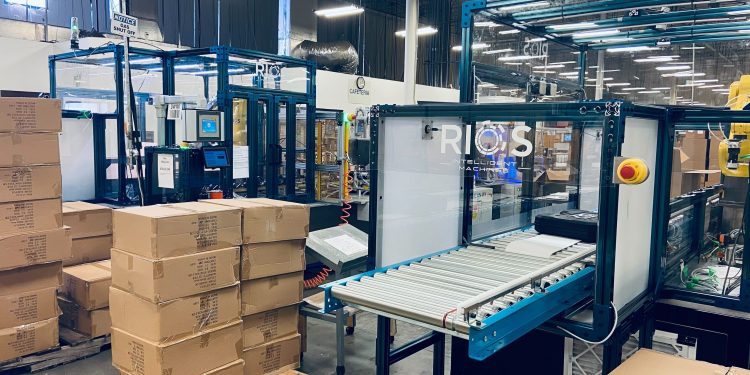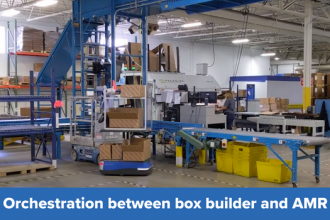How Robotics can Increase Your Throughput

Any business leader can tell you that an incessant drive for efficiency is what sparks meaningful change that results in greater productivity and profitability. When it comes to manufacturing, there are many potential constraints to maximum efficiency.
Some factors can reduce your ability to minimize cycle times. This may include available workforce, floorspace, or financial investment limitations. However, with robotics in your warehouse, you can increase your throughput and customer satisfaction while reducing friction.
Here are four ways robotics can increase your throughput and benefit your manufacturing process in the long term.
1. Minimized manual processes
A clear benefit of robotics is the reduction of time-consuming manual processes that extend cycle time. The fewer hands on your items throughout a production process, the less friction. Robotics reduce the number of touch points required to complete a good from raw material to finished product. In essence, robotics streamline your production. Your ability to keep things moving is ultimately what will result in more products in less time. This creates an efficient and sustainable process that will save you time and money.
2. Enhanced floor layout
With the right robotics for your company, you can create optimal floor layouts to increase your throughput. Your warehouse’s chosen layout greatly affects your inventory levels, and your ability to conduct proper Quality Assurance (QA) and streamline material flow.
For example, a traditional warehouse may use a “batch-and-queue” production method. This method produces a large amount of inventory at a time. While this may work for some industries, it minimizes your ability to adapt production levels for changes in demand. This may result in excess inventory and thus increased storage costs.
Cellular manufacturing offers an alternative with the use of proper robotic equipment. By creating a C-shape line, raw materials enter the cell and a finished good leaves the cell. As each cell results in a finished product, you can skip hauling unfinished goods from department to department across the warehouse. This allows you to create the amount you need faster which fulfills your requests faster as well.
3. Greater transportation and storage abilities
With the right robotics and industrial manipulators for your warehouse, you can generate and monitor inventory levels more prudently. For example, robotics can allow you to generate the amount of inventory you need, reducing your storage costs.
An added benefit of robotics includes easily moving and storing inventory. With customized industrial manipulators, you can move materials and goods faster. By increasing your options for safe and convenient mobility in the warehouse, you increase your throughput.
4. Better employee health and sustainability
With the right equipment, you do more than just increase your bottom line — you take care of your employees as well. Employee health and wellness is part of every employer’s purview.
When you invest in robotics, you minimize the physical burden on your employees. This frees them up to do their job better and reduces burnout and turnover. Giving your employees the right equipment supports a healthier workplace environment where people can thrive. Furthermore, you can produce quality materials with less hassle and backlog due to employee injury or turnover.
Consider robotics for your business
If any of these points resonate with you, consider investing in robotics at your company and see the power of technology at play.
To read more about the Buyer’s Journey:
Sharing Best Practices – Post Implementation
How To Avoid Potential Pitfalls Of Robotics Ownership
Your Guide To Successful Metrics For Automation Implementation
Orchestrating Workflows Within Your Distribution Center
Justifying Robotics In Your Operations
Robotics – The Buyer’s Journey, Part II
To learn more about The Robotics Group (TRG): https://www.mhi.org/robotics



